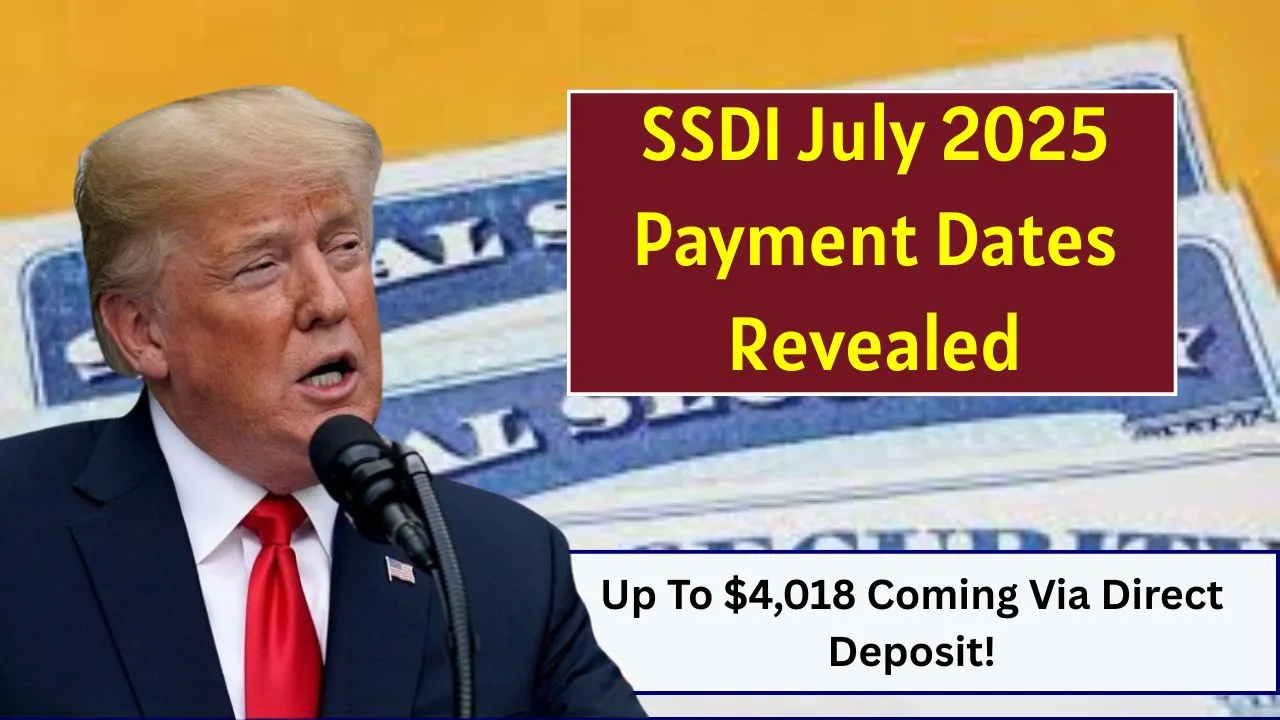$1400 Stimulus Checks: Millions of Americans are still eligible to receive the $1400 Stimulus Checks from the 2021 Economic Impact Payment program. Although many received their full amount automatically, a significant number were underpaid or never got paid due to filing errors, outdated banking details, or life changes that affected their eligibility. The IRS introduced the Recovery Rebate Credit to help these individuals claim what they’re owed—but the clock is ticking: the deadline to file is July 15, 2025.
$1400 Stimulus Checks
The $1400 Stimulus Checks offer a final opportunity for eligible individuals to claim missed or partial stimulus payments, leveraging the Recovery Rebate Credit mechanism. If you filed your 2021 tax return and still didn’t receive the full amount, or if you didn’t file at all that year, you may still qualify. To claim this payment, you need to file a 2021 federal tax return by July 15, 2025, even if your income was zero. This process ensures that anyone overlooked due to non-filer status, banking changes, or IRS errors can secure their rightful credit before time runs out.
| Topic | Details |
| Program | Recovery Rebate Credit – third round EIP under ARPA |
| Payment | Up to $1,400 per eligible person or dependent |
| Claim Deadline | July 15, 2025 |
| Income Limits | Single < $75k; Head of household < $112.5k; Married filing jointly < $150k |
| Phase-Out Ranges | Single: $75k–80k; Head of household: $112.5k–120k; Married jointly: $150k–160k |
| Requirements | U.S. citizen/legal resident, SSN, not a dependent, filed 2021 tax return |
| Reasons Missed Payment | Non-filer, outdated bank info, life events, IRS errors |
| How to Claim | File 2021 return, complete Form 1040 Line 30 |
| Payment Methods | Direct deposit (3–4 weeks) or check (6–8 weeks) |
| Final Tip | File before July 15, 2025 – no extensions |
Who Is Eligible for the $1400 Stimulus Checks?
To qualify for the $1400 Stimulus Checks, your 2021 adjusted gross income (AGI) must be below key thresholds:
- Single filers: Full payment under $75,000 AGI; partial payment up to $80,000 AGI
- Head of household filers: Full under $112,500; partial until $120,000 AGI
- Married filing jointly: Full under $150,000; partial until $160,000 AGI
In addition, you must be a U.S. citizen or legal resident, have a valid Social Security number, and not be claimed as someone else’s dependent. Filing a 2021 federal tax return—even if your income was zero—is essential. This qualifies you for the Recovery Rebate Credit, especially if you received a partial payment or no payment at all.
Why Some People Never Received Their Stimulus Check
Despite the large-scale distribution of stimulus payments, many eligible Americans still didn’t get their full amount. Common reasons include:
- Non-filers: Individuals with little or no income often didn’t file taxes and were skipped.
- Bank account changes: If your bank changed after filing a tax return, direct deposits may have failed.
- Life changes in 2021: Turning 18, having a child, marriage, or divorce could shift eligibility status.
- IRS processing errors: Outdated addresses or internal errors sometimes prevented payments.
The IRS estimates nearly one million people remain eligible but unclaimed, mostly due to these issues.
How to Claim Your $1400 Stimulus Checks
Here is a clear, actionable path to secure your payment:
1. File a 2021 Tax Return
Even if you didn’t earn income, file. Use IRS Free File for simple filings, or paid software like TurboTax, H&R Block, or TaxAct, or enlist a tax professional.
2. Complete Form 1040 Line 30
On your 2021 return, locate Line 30 and report any stimulus payment already received. The IRS will calculate your remaining amount based on that entry.
3. Submit by July 15, 2025
This is a non-negotiable deadline for the Recovery Rebate Credit. Unlike other deadlines, this one is set in stone.
4. Choose Payment Method
- Direct deposit: Adds funds to your bank in 3–4 weeks
- Paper check: Mailed to your address in about 6–8 weeks
Common Mistakes to Avoid
To ensure your claim is accepted:
- Correct tax year: Must be 2021. Other years don’t qualify.
- Complete the credit section: Skipping Line 30 means no credit recorded.
- File before deadline: After July 15, 2025, the IRS won’t accept new claims.
Using outdated or incorrect information will slow down or block your claim.
Beware of Stimulus Check Scams
Scammers often pose as the IRS, using urgent calls or suspicious emails. The real IRS will never:
- Contact you asking for your Social Security number or bank info
- Demand money or say you must pay to unlock your payment
- Use unverified channels for communication
Always check IRS.gov or consult a trusted tax professional. Protect your details and stay alert.
Why This Matters Now
With inflation, rising bills, and unexpected expenses, an extra $1,400 per person can be lifesaving. It could go towards groceries, debt, emergency savings, or necessary repairs. You earned this money, so don’t leave it behind. Filing the 2021 tax return takes minutes and could yield real relief just weeks later.
FAQs
1. Can I amend my 2021 return if I already filed?
Yes. Use Form 1040-X to amend your tax return and include the Recovery Rebate Credit to claim missed stimulus funds.
2. I got part of the payment—will I receive the rest?
Yes. Enter the amount you received on Line 30, and the IRS calculates any remaining credit due.
3. No income in 2021—can I still file?
Absolutely. Filing a zero-income return still qualifies you for the Recovery Rebate Credit.
4. My bank account changed—what should I do?
Provide updated account info on the 2021 return for direct deposit, otherwise you’ll receive a paper check.
5. Is the July 15, 2025 deadline the same as regular tax deadlines?
No, this is a specific cut-off for the Recovery Rebate Credit. File before the date or lose access to the credit forever.
Final Thought
The opportunity to claim your $1400 Stimulus Checks won’t last long. Filing your 2021 tax return by July 15, 2025 is easy, free for most, and could potentially bring significant financial relief into your pockets. Don’t overthink it—check your eligibility, file now, and secure what’s yours.
If this article helped, please share it with friends or family who might also benefit. Have questions on filing, deadlines, or eligibility? Leave a comment below—I’m here to help you navigate the process and claim your rightful credit.














